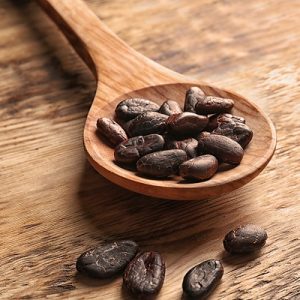
More evidence that low-calorie sweeteners are bad for your health
Studies show that artificial sweeteners can raise the risk of hypertension, metabolic syndrome, type 2 diabetes and heart disease, including stroke.

Natural Health News — A balanced diet is chocolate in both hands, as they say. But what if it was true – at least for some of us?
The cocoa bean is a rich source of flavanols: a class of natural compounds that has antioxidant and neuroprotective effects. In a recent review Italian researchers examined the available literature for the effects of cocoa flavanols on different types of cognition.
Specifically they were looking for what happens to your brain in the few hours after you eat cocoa flavanols, and what happens when your intake of cocoa flavanols is sustained over a longer period of time?
The analysis published in Frontiers in Nutrition showed that directly after consuming cocoa flavonols participants showed, among others, enhancements in working memory performance and improved visual information processing.
For women, eating cocoa after a night of total sleep deprivation actually counteracted the cognitive impairment (i.e. less accuracy in performing tasks) that such a night brings about. Promising results for people that suffer from chronic sleep deprivation or work shifts.
» Cocoa flavonols are known to have a neuroprotective effect.
» A recent analysis of existing literature turned up some interesting findings on who benefits most.
» For young healthy individuals the benefits were less than for older people who were showing early signs of cognitive decline
» For this group daily dark chocolate could be considered therapeutic.
Bigger benefits as we age
It has to be noted though, that the effects depended on the age of the person and the length and complexity of the cognitive tests used to measure the effect of cocoa consumption. In young and healthy adults, for example, a more demanding cognitive test was required to reveal subtle immediate behavioural effects that cocoa flavanols have on this group.
The effects of relatively long-term ingestion of cocoa flavanols (ranging from 5 days up to 3 months) has more often been studied older people. For them cognitive performance was improved by a daily intake of cocoa flavanols.
Factors such as attention, processing speed, working memory, and verbal fluency were greatly affected. These effects were, however, most pronounced in older adults with a starting memory decline or other mild cognitive impairments.
A daily dose for memory
According to authors Valentina Socci and Michele Ferrara from the University of L’Aquila in Italy this was the most surprising and hopeful result.
“This result suggests the potential of cocoa flavanols to protect cognition in vulnerable populations over time by improving cognitive performance. If you look at the underlying mechanism, the cocoa flavanols have beneficial effects for cardiovascular health and can increase cerebral blood volume in the dentate gyrus of the hippocampus. This structure is particularly affected by aging and therefore the potential source of age-related memory decline in humans.”
So should cocoa become a dietary supplement to improve our cognition? The answer is yes but with the usual caveats that dark, low sugar chocolate is preferable to sugary milk or white chocolate. You can also buy cocoa- or cacao-based food supplements to enhance your daily diet.
Socci and Ferrara say they are the first to put their results into practice: “Dark chocolate is a rich source of flavanols. So we always eat some dark chocolate. Every day.”

Please subscribe me to your newsletter mailing list. I have read the
privacy statement